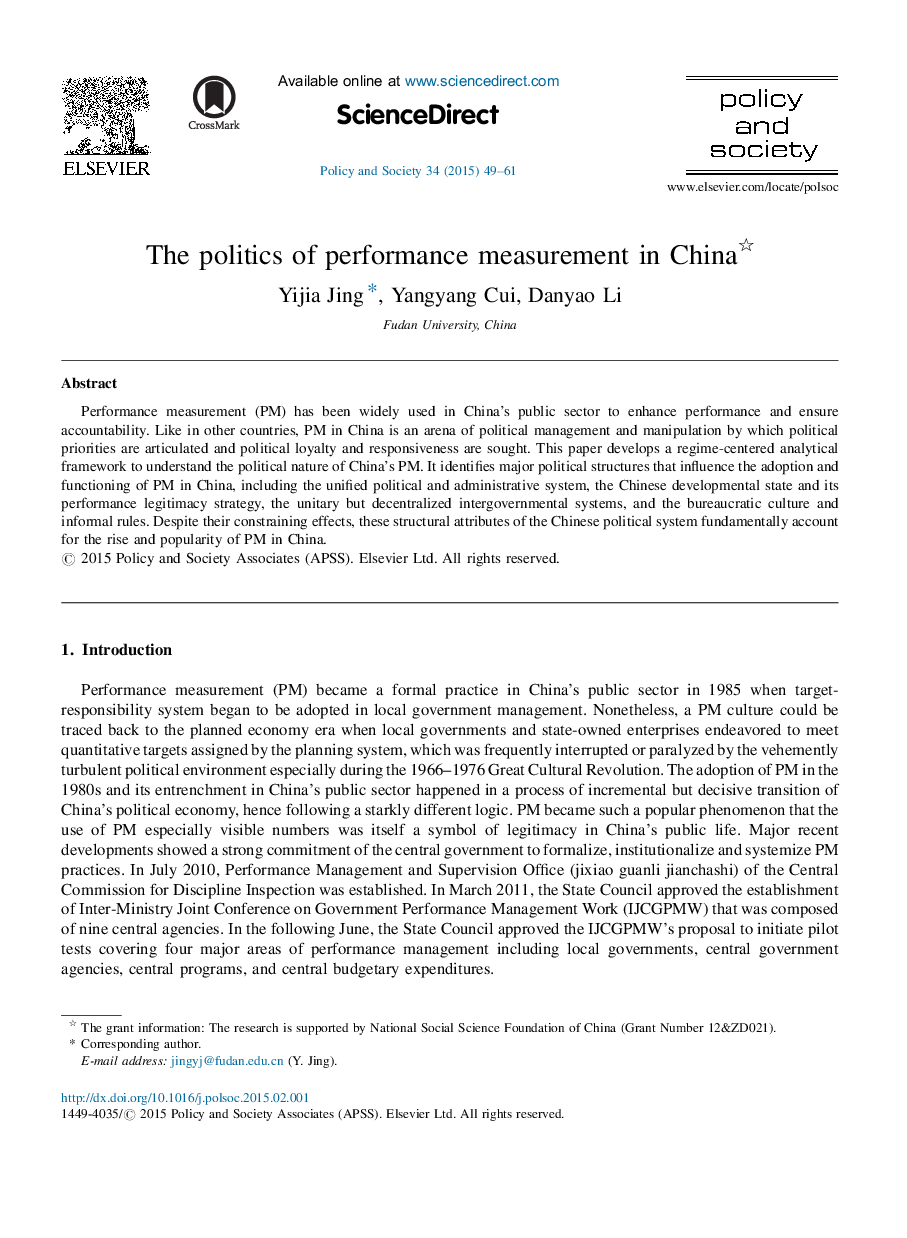| Article ID | Journal | Published Year | Pages | File Type |
|---|---|---|---|---|
| 1061519 | Policy and Society | 2015 | 13 Pages |
Performance measurement (PM) has been widely used in China's public sector to enhance performance and ensure accountability. Like in other countries, PM in China is an arena of political management and manipulation by which political priorities are articulated and political loyalty and responsiveness are sought. This paper develops a regime-centered analytical framework to understand the political nature of China's PM. It identifies major political structures that influence the adoption and functioning of PM in China, including the unified political and administrative system, the Chinese developmental state and its performance legitimacy strategy, the unitary but decentralized intergovernmental systems, and the bureaucratic culture and informal rules. Despite their constraining effects, these structural attributes of the Chinese political system fundamentally account for the rise and popularity of PM in China.
